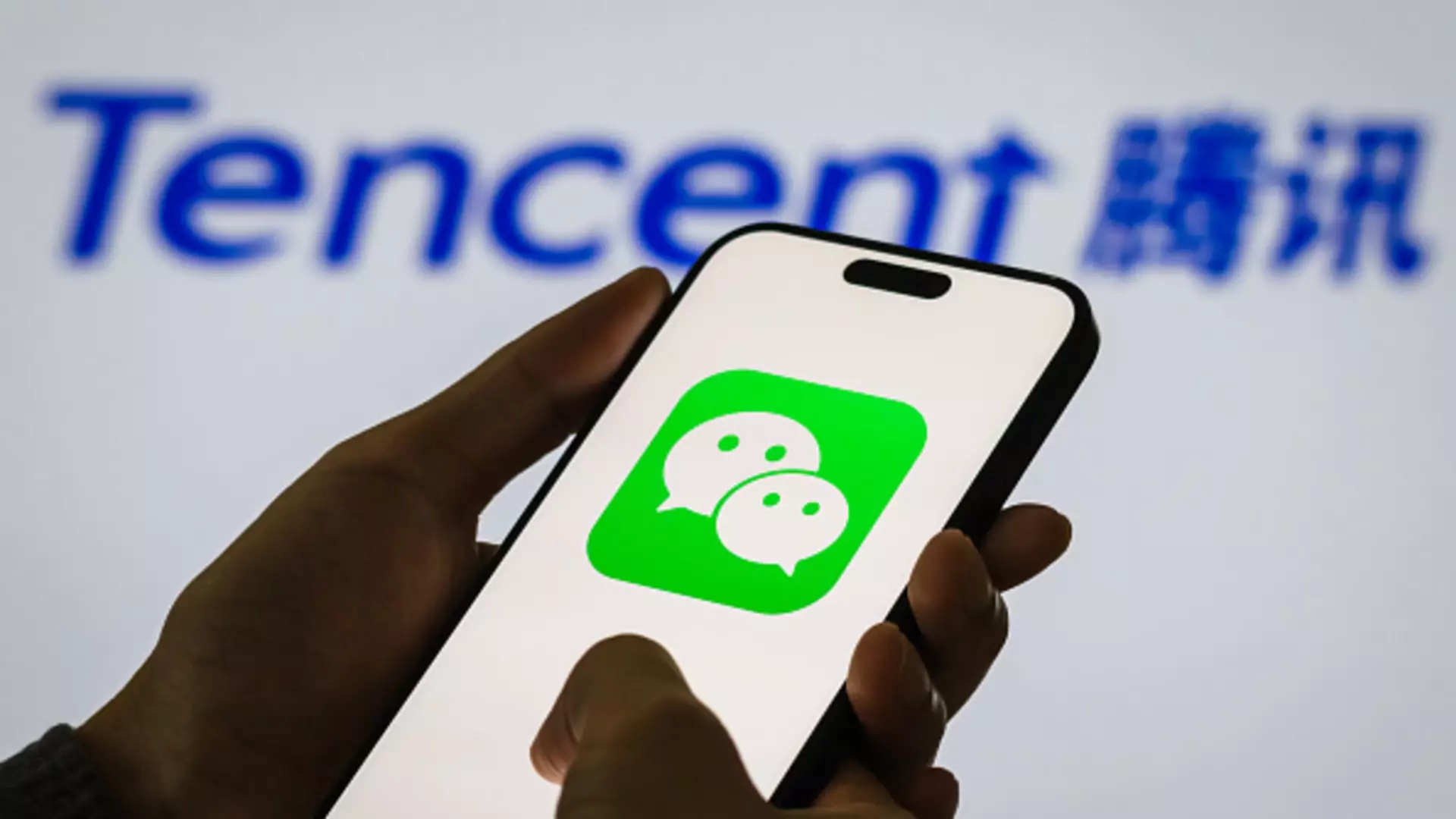Tencent has always been synonymous with gaming excellence, a titan in the entertainment industry that’s difficult to underestimate. Yet, it has recently demonstrated an extraordinary capacity to pivot and adapt in an arena marked by fierce competition and relentless technological advancement. The company’s latest financial reports reveal a phenomenal success story driven not only by its gaming revenues but also by a strategic emphasis on artificial intelligence (AI). In the spirit of responsiveness to market needs, Tencent has managed to elevate its overall financial health, showcasing an awe-inspiring 90% increase in profits year-on-year. When the odds of economic slowdown seemed heavy upon them, Tencent cleverly maneuvered around macroeconomic headwinds and regulatory challenges, reaffirming its position as an indelible titan of tech.
This impressive financial performance, particularly a fourth-quarter revenue of 172.4 billion Chinese yuan, epitomizes how well the company has navigated through turbulent waters. Many would applaud Tencent’s ability to turn adversity into opportunity, positioning itself as the largest player in both gaming and advertising. A resounding achievement is its notable domestic games revenue enhancement, boasting a year-on-year surge of 23%, contributing to a larger narrative of aggressive recovery and growth.
The AI Investment Surge
What gives this tiger success more teeth, however, are the staggering increases in capital expenditures and Tencent’s unyielding commitment to AI technology. Capital expenditure ballooned by more than threefold in 2024, soaring to a staggering 76.8 billion yuan. This shift firmly grounds Tencent’s future in AI innovation, putting the company neck-and-neck with undeniable competitors such as Alibaba, which maintains a fierce foothold in the market. In a tech climate rife with rapid evolution, these initiatives are neither incidental nor trivial; they signify a well-calibrated strategy that seeks not only to innovate but also to disrupt the norms of digital interaction in China and beyond.
The rollout of AI models, like the recently launched Hunyuan3D-2.0, speaks volumes about Tencent’s dedication to becoming a key player in AI. Models that breathe life into flat images or text represent a new wave of creativity and interactivity, indicative of what the future could hold for consumer engagement. The mere doubling of AI cloud revenue year-on-year underlines the potency of these investments. The question is, will this focus on AI yield substantial revenue in the long run, especially against the backdrop of a crowded market necessitating constant innovation?
Robust Advertising Revenue Amidst Economic Tensions
Beyond gaming, Tencent is witnessing remarkable strides in its advertising sector, helped largely by an ever-growing pool of WeChat users—now more than 1.38 billion monthly active users strong. Marking a notable 17% year-on-year increase, Tencent’s marketing services business has become a key pillar of its financial health, evolving to align better with consumer needs and advertiser demands. This adaptability, bolstered by AI advancements, offers tremendous potential for fine-tuning ad targeting, ensuring that both consumers and brands find more relevance in their interactions.
While the top-line figures paint a promising picture, critical observers might wonder if this apparent success can be sustained. With increasing investments in AI, there looms the risk of placing too much wager on unproven technologies. The challenge will undoubtedly reside in how effectively Tencent can monetize its AI discoveries while still managing investor apprehensions regarding potential returns.
The Competitive Landscape and Future Direction
As Tencent forges ahead, the landscape remains fraught with competitive pressures. Other tech giants like Alibaba and Baidu are not sitting idly by; they’re innovating at breakneck speed, releasing competitive AI models and applications that challenge Tencent’s standing. The competition, however, serves as a double-edged sword, pushing Tencent to always stay ahead while also opening opportunities for collaborations and synergies within the ecosystem.
The importance of strategic partnerships is acute; there’s a wealth of untapped potential in the integrated applications of AI technology across various platforms. Tencent’s responsiveness, such as the deployment of specific AI solutions within its own WeChat framework, highlights a nuanced understanding of how to marry consumer engagement with technological efficacy. The much-anticipated integration of their Yuanbao AI chatbot into daily consumer interactions could change the game for digital communication in the region.
As we witness the evolution of this digital ecosystem, it is clear that Tencent, with its unique blend of gaming and AI ambitions, stands on the edge of massive potential transformation. The forthcoming years will be critical in defining whether this gamble will lead to sustained growth or whether ambitious targets will be left unfulfilled amid the reality of rapidly shifting digital landscapes. One thing is certain: Tencent has put its chips in on AI, and as the stakes rise, all eyes will be watching its next move.

Leave a Reply